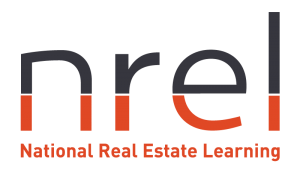Top 10 Growth Suburbs: Brisbane
Brisbane’s median house price has hit a record high of $673,000 after an increase of 2.5 per cent in the past year.
The market in Brisbane’s local government area (LGA) has grown almost 30 per cent in the past five years thanks to “steady,…
Real Estate Course
Real estate is a career path that can provide many employment opportunities. It's an adaptable role that allows to you the independence to take control of your career and grow it to become more than just a job.
Like any line of work, there…
Tip 5: How To Manage Your Day
Welcome to the end of another Tip Series. This last one is very simple but probably the most important.
Tip 5: Know Your capacity
The best way to work effectively and efficiently, is to know your capacity. Capacity is the fuel that makes…
Tip 3: How To Manage Your Day
You might notice a theme appearing, managing your day to day work life is built on a foundation of how you work. If you understand how you work, your routine will be more efficient enabling you to get better results, to get more done and fundamentally…
Pros and Cons To Multi-Listings
A multi-listing, or a multiple listing agreement is an option open to sellers if you’re willing to offer it.
Normally, under an exclusive agreement, one agent/agency handles the entirety of the sale process from start to finish, including…
Tip 2: How To Manage Your Day
Carrying on from our previous tip where we discussed working proactively instead of reactively. Our next tip looks into how best to proactively work.
Tip 2: Building a schedule around your rhythm
Every day we have a rhythm to our energy…
Is Multiple Listings In A Street Good Or Bad?
“There’s a few houses for sale in my street, it mustn’t be a good time to sell.”
It’s a common assumption raised by sellers, and although it may not create the best first impression for buyers, it’s not always a bad thing.
Multiple…
Tip 1: How To Manage Your Day
Through our constant connectivity to each other, when have become increasingly reactive to what comes to us rather than being proactive about what matters the most. We are trying to stay afloat by responding and reacting to the latest email,…
Do Your Listed Properties Need More Buyers?
Enhancing a listed property to look and feel like a home will attract greater buyer competition and ultimately push the price of the property up. So, how do you position a property in a way that will appeal to more buyers?
Focus on quality
If…
The Best Qualities Of The Top Agents
Good Real Estate Agents can be difficult to find. It’s a competitive industry, so how do you know which qualities to present to ensure you stand out from the crowd?
NREL has chosen 8 top qualities for you to stay one step ahead of the game.
1.…
How To Respond To Your Reviews - Tip 5
To finish off this “How To Respond To Your Reviews” series, I just want to remind you to move on.
It is impossible to please 100 percent of your clients all the time and not all of your reviews will be 5 stars. You will at some stage…
Should Your Vendors Move Out While You Sell Their Home?
It’s a common question vendors ask Real Estate Agents as they prepare to sell their home.
“Should I move out while my home is on the market?”
Although some vendors aren’t in a position to move out during the selling campaign, it’s…
What Determines Property Prices?
Historically, the residential property market has been kind to Australian homeowners.
Realestate.com.au provided a price growth example of two different Melbourne locations over the last 40 years, which helps explains why location determines…
Tips To A Fast And Effective Selling Campaign
As an agent, you will come into contact with sellers who need to sell NOW. Whether they have come into financial difficulty or a family break up, some sellers need their property on the market the moment the listing agreement is signed.
So,…
How To Respond To Your Reviews - Tip 2
Today we will dive into what tools you could use to respond to your reviews.
Majority of your reviews would come through 'Rate My Agent' and to a lesser extent, Facebook. The plus side of these platforms is that both allow you to either respond…
Set Up A Reward For Every Goal You Achieve
All Real Estate Agents are familiar with sale targets. Real estate is a numbers game and it doesn’t matter if your targets were set by yourself or your leader, reaching them (or smashing them out of the ball park) every month or quarter is…

